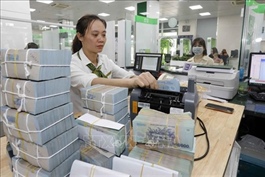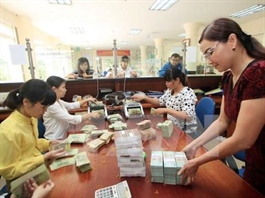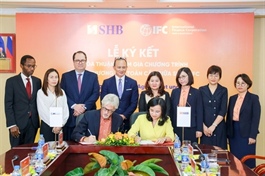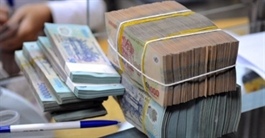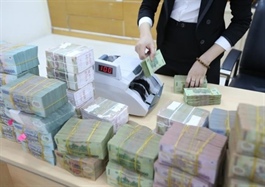Refined laws required to combat laundering
Refined laws required to combat laundering
Vietnam is working to implement anti-money laundering regulations within the crypto sector amid a global rise in digital assets.

The country is embroiled in the global integration of digital currencies and the resultant technological explosion, and is fervently crafting a legal pathway to combat money laundering and other high-tech financial crimes.
The approved Law on Anti-Money Laundering, which came into effect in March, has spurred the government and the State Bank of Vietnam to enact deployment regulations and guidelines, tailoring provisions to sync with prevailing realities, according to Nguyen Quoc Hung, general secretary of the Vietnam Banking Association, at a seminar on regulations on anti-money laundering in cryptocurrency transactions last week.
However, he also warned that the landscape of digital and cryptocurrencies, where legal structures are yet unrefined, presents advanced and intricate challenges, especially with criminals employing increasingly sophisticated methods. Cryptocurrency, while used for transactions, does not exclude money laundering activities through this type of transaction.
“Vietnam has yet to recognise cryptocurrency, but transactions still occur in reality. So, how do we prevent money laundering? It is essential to recommend regulatory agencies to complete legal regulations to restrict and prevent criminal behaviour,” Hung said.
Hung Tran, senior advisor to the Vietnam Blockchain Association (VBA), said that the development of blockchain technology had ushered a new epoch in technology for various sectors.
“Notwithstanding, this robust growth brings not only special economic and social benefits but also creates invisible existences and challenges in management, especially for cross-border money laundering activities,” Tran said.
A September 2022 report from Boston Consulting Group and ADDX estimated that asset tokenisation will reach $16 trillion by 2030, or 10 per cent of global GDP.
Meanwhile, HSBC and Northern Trust have also estimated that 5-10 per cent of all assets would be tokenised by 2030.
“With the advent of blockchain tech, there is a risk of increasing financial crimes and sophisticated money laundering using high technology. In Vietnam, due to the lack of a specific legal framework and quality human resources to manage and control cryptocurrency, digital assets, the general landscape is still very limited,” Tran said.
Delving deeper into the matter, Phan Duc Trung, permanent vice chairman of the VBA, cited that cryptocurrency is a field without clear legal regulations in Vietnam, but the actual transaction volume ranks 15th in the world, and the level of accepting cryptocurrency is the highest globally.
According to data from Chainalysis, shared by the US Department of Justice at the Supreme People’s Court of Vietnam in late August, the total value of cryptocurrency received by Vietnam from October 2021 to October 2022 was $90.8 billion.
“A portion of this colossal figure, around $950 million, has its roots in illegal activities,” Trung said.
He also said that Vietnam’s strategic navigation through this intricate blockchain labyrinth reflected an ambitious pursuit to echo the regulatory footsteps of entities like the EU, which instituted the Markets in Crypto-Assets regulation, albeit with formal enactment scheduled for 2024.
This endeavour to establish transparent and viable crypto regulations is a shared vision, with global economic powerhouses, including the United States and Hong Kong, also forging paths in enhancing transparency, legal adherence, and user security in anti-money laundering and combating the financing of terrorism protocols.
However, this journey is punctuated with challenges, manifested in Vietnam’s struggle with the absence of specific legal frameworks and a scarcity of adept human resources in digital assets and cryptography.
In response to this predicament, initiatives like ChainTracer were launched earlier 2023 by the VBA in collaboration with the Anti-Scam Business Company, founded by security expert Ngo Minh Hieu.
Nguyen Doan Hung, vice chairman of the VBA, said the initiatives of the association are pivotal but not wholly adequate to fortify the enforcement of anti-money laundering activities effectively, and emphasised the urgent need for a transformative approach in perceptions and strategies from financial institutions to navigate this domain.
“Money laundering is often associated with illegal arms trading, terrorism financing, human trafficking, corruption, insider trading, gambling, or large-scale, organised cross-border prostitution rings. Therefore, anti-money laundering work has been a priority for all countries around the world, including Vietnam, for quite some time,” Hung added.








